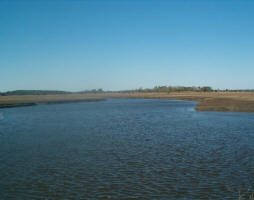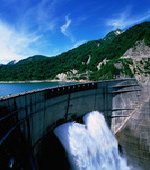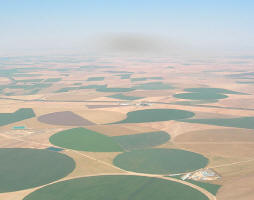 Ecotoxicological evaluation of municipal and industrial waste waters
Ecotoxicological evaluation of municipal and industrial waste waters
Wastewater composition is complex and many components are not easily identifiable. Moreover, toxicity depends on the interaction between different components and must be measured directly. The Direct Toxicity Assessment (DTA), a measuring tool used in different European countries, has shown that an integrated approach to eco-toxicological problems is an effective strategy in minimising eco-toxicological pressure in the environment caused by wastewater. In Portugal, given the lack of a relevant legal framework, research in this area is poorly developed. Nonetheless, eco-toxicological tests are considered as having a good cost/benefit ratio. There is then a need to fill existing gaps in national legislation and create the necessary scientific framework.
| Project number | Reference: LIFE02 ENV/P/000416 | ||
|---|---|---|---|
| Subject(s) | ANALYSIS AND TESTS , CHARACTERISTICAL PARAMETERS OF WATERS AND SLUDGES , DRINKING WATER AND SANITATION : COMMON PROCESSES OF PURIFICATION AND TREATMENT , INDUSTRY , MEASUREMENTS AND INSTRUMENTATION , PREVENTION AND NUISANCES POLLUTION , RIGHT , SANITATION -STRICT PURIFICATION PROCESSES | ||
| Acronym | ECORIVER | ||
| Geographical coverage | Portugal | ||
| Budget (in €) | 1151131 | ||
| Programme | LIFE | ||
| Web site | http://www.iambiente.pt/ecoriver | ||
| Objectives | The project’s main objective was to demonstrate the importance of eco-toxicology for wastewater management and to establish planning and controlling techniques for industrial and municipal wastewater networks. The actions planned included evaluation of municipal and industrial wastewater eco-toxicity, assessment of wastewater’s impact on the basin and elaboration of a proposal for eco-toxicity criteria to be included in national legislation. Methodologies are also to be established for the support of laboratories dealing with issues of toxicological evaluation of wastewater. The project was to elaborate a model for the drainage basin. This was to enable predictions as to the environmental benefits of wastewater control policy as well as optimisation of future works. The project was intended to raise public awareness as to the importance of eco-toxicity. The project was to be implemented in the river Trancão and adjacent basin, north of Lisbon. It is a small, but heavily industrialised and densely populated area. The river Trancão flows into the Tagus estuary, one of the largest rivers in Portugal. This basin is suitable for a demonstration project aiming to compare several methods of evaluating eco-toxicity from different effluent types. |
||
| Results | This demonstration project, developed in the Trancão river basin, integrated an eco-toxicological and psychochemical study of wastewaters from industries in different sectors, wastewater treatment plants as well as receiving waters. Project results can contribute to an EU legislative framework more in tune with Member State needs as regards management, control and improvement of wastewaters discharges quality. Some main conclusions and recommendations are: - DTA methodologies are available and should be used in evaluating and controlling complex wastewater eco-toxicity. - Following eco-toxicological assays of wastewaters, the use of a selected test battery with bacterium, algae and crustacean is proposed. - The eco-toxicological approach is clearly of added value in the hazard and risk assessment of discharges into receiving waters and can contribute to more correct establishment of discharge conditions. This would enhance protection of aquatic life and the good ecological status of receiving waters. - Modelling was demonstrated to be a useful tool to evaluate the impact of effluents on the receiving waters. Modelling also evaluated suggested management actions, identified risk areas and seasonal critical periods. Its use is recommended in monitoring programs of receiving waters and in the definition of toxicity limits for discharges based on discharged flow and dilution capacity. - The ecological characterization of receiving systems will benefit from sediment studies with chemical, eco-toxicological and biological components. |
||
| Period | [01/10/2002 - 30/09/2005] | ||
 you are not logged in
you are not logged in





